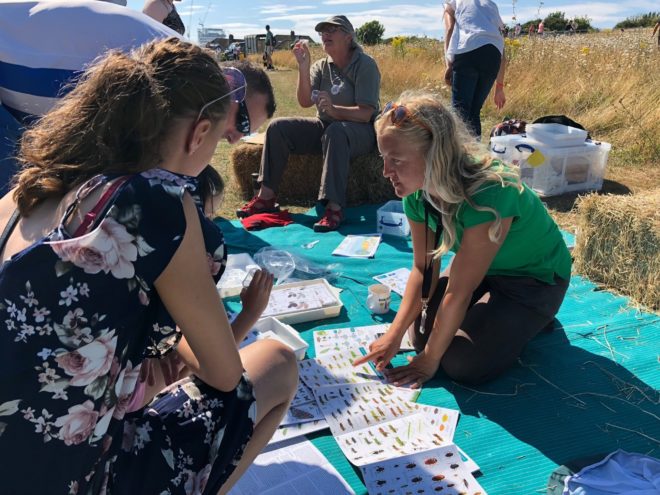Outcome 6: Lifelong Learning
There is widespread understanding of the special qualities of the National Park and the benefits it provides.
- WHY IS IT IMPORTANT?
Worldwide, there is compelling evidence of a growing disconnect between people and the natural environment.
The National Park provides a real opportunity for people to take part in life-long learning opportunities, which help people move from inspiration to taking action and getting involved.
With 893 schools inside, or within 10 kilometres of the boundary, the potential is
huge. Nearly 200 providers of outdoor learning opportunities, from farm visits to museums and adventurous activities, offer a diverse range of learning experiences.
Changes to the National Curriculum and OFSTED Inspection Framework
have created the opportunity to support schools with locally relevant learning across the whole curriculum.However, barriers include the rising cost of transport to sites and the confidence
and skills of some school staff in leading groups outdoors.Adult and life-long learning is also a key sector and organised groups are well represented, including the University of the Third Age (U3A) which has over 38 branches in and around the National Park.
There are 42 higher and further education organisations which have areas of academic interest aligned to National Park Purposes. Creating a shared knowledge of the National Park and building a robust evidence base to guide future delivery is a key opportunity for this sector.
With over 70 per cent of the National Park classified as agricultural, and with a rich cultural heritage, the land-based economy and traditional rural businesses and crafts have historically provided local jobs and support many of the
special qualities.Long-term commitment and support for training and skills development is vital
for the future.
For this outcome our priorities for the next five years are:
- 6.1 PROVIDE OUTDOOR LEARNING FOR YOUNG PEOPLE
To provide high-quality outdoor learning opportunities as part of a locally relevant curriculum.
There is clear evidence from a wide range of academic publications and research studies that learning outside the classroom is beneficial for young people’s social, physical and academic development.
In an Authority survey of 213 schools in 2017, 96% of school head teachers or outdoor learning coordinators said learning outside the classroom was good for children’s physical and mental health and improved their personal, social and emotional development.
Improved behaviour was noted by 77% and 75% stated that it raised attainment. We want more children to be able to access high-quality learning opportunities as part of a locally relevant curriculum.
The highly successful South Downs Learning Network, facilitated by the Authority will continue to deliver high-quality learning outside the classroom opportunities for young people.
These activities will include designing locally relevant programmes of study with head teachers and curriculum planners, delivering teacher training and INSET day sessions with school staff, working with Universities to up-skill trainee teachers,
targeting learning through initiatives that support health and wellbeing and providing supporting infrastructure through the Learning Zone, Learning Map and School Travel Grant.
Example: Inspiring the next generation of Teachers
 Teacher confidence in delivering learning outside the classroom is a key challenge in providing highquality outdoor learning experiences for young people.
Teacher confidence in delivering learning outside the classroom is a key challenge in providing highquality outdoor learning experiences for young people.Teachers entering the profession now are more likely than ever to have experienced nature deficit themselves during their childhoods, reflected in a decline in confidence in teaching and learning outdoors.
This Authority led project aims to engage trainee teachers through their universities and colleges as an important step in building confidence in teaching outside the classroom and knowledge of how to embed this into the national curriculum.
This has been delivered through a lecture and practical workshop sessions to 100+ second year Initial Teacher Education (ITE) students at the University of Brighton in 2018.
Workshops included a running game/orienteering star course, geology rocks, landscape art & photography, John Muir Award ‘Mission Explore’ and a history extravaganza delivered by Charleston House and the Sussex Archaeological Society.
After the immersion this cohort of future primary teachers left with a much improved understanding of the potential of learning outside the classroom in the inspirational South Downs – and more confidence in knowing where to begin.
